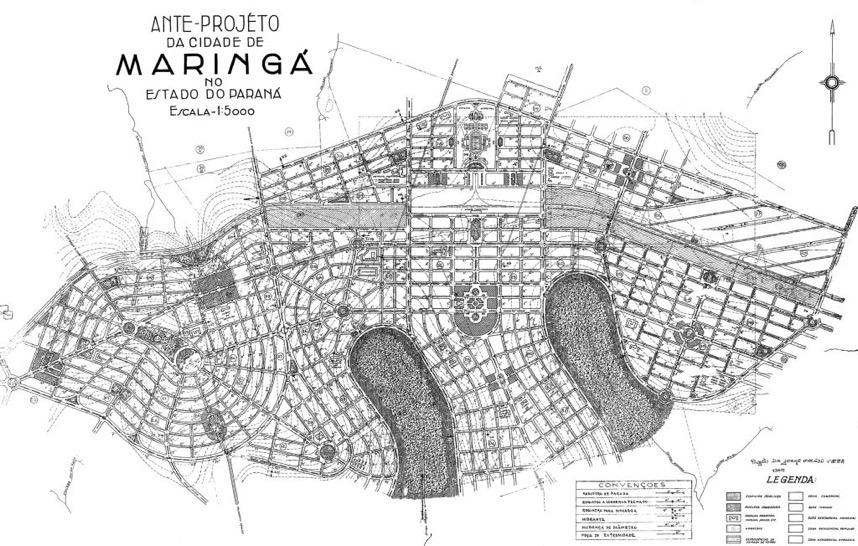Brazilian Garden Cities and Suburbs: Accommodating Urban Modernity and Foreign Ideals
Renato Leão Rego

Image: Layout of Maringá, c.1945. Source: Museu da Bacia do Paraná.
Abstract
This article discusses some adaptations of the garden-city concept in Brazil and reveals how a foreign physical model was conveniently matched to specific civic purposes. The layout of three planned new towns— Águas de São Pedro, Maringá, and Goiânia—and two garden suburbs (Jardim América and Jardim Shangri-lá) are analyzed along with their planners’ discourses and their representations in the contemporary local press. The analysis reveals that the garden-city concept was used as a path to modernity, a civilizing instrument, and a tool for real-estate venture by involving processes of representation and institutionalization which were different to those at their point of origin.
Rego, R. L. “Brazilian Garden Cities and Suburbs: Accommodating Urban Modernity and Foreign Ideals.” Journal of Planning History 13 , no. 4 (2014): 276-295. https://doi.org/10.1177/1538513214521582



